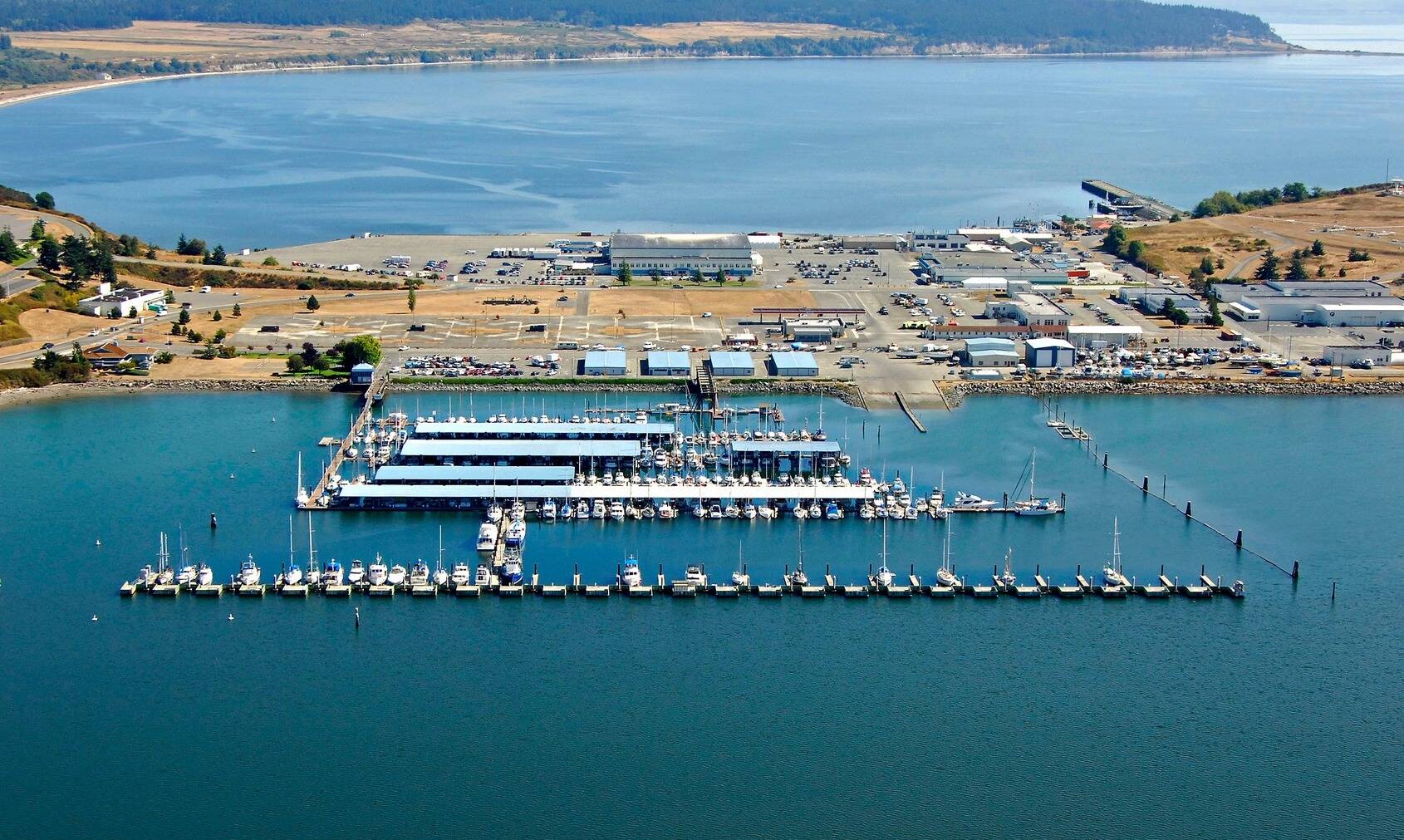Oak Harbor’s mayor cast a rare tie-breaking vote at a Tuesday city council meeting in favor of consultant-recommended marina moorage rate increases that focus on larger boats.
In introducing the agenda item, Harbormaster Chris Sublet acknowledged that the rate increase is “a sensitive issue,” especially since the Marina Advisory Committee had an alternative recommendation.
“This is going to be a hard discussion,” he said, “but in order for the marina to continue to keep growing and keep going, we have to have these discussions.”
In voting for the schedule of rate increase recommended by BST & Associates and city staff, Mayor Bob Severns said he hoped that his friends on the marina committee won’t be upset with him.
“I think the long-range, better opportunity for the Oak Harbor marina is the BST plan,” he said.
The main difference between the two plans is in who will bear the greatest percentage of the rate increase. In the plan that was ultimately adopted, those who have larger slips will see a higher rate increase. The increases will go into effect Nov. 1.
The plan will increase rates over a three-year period with Oak Harbor moorage rates reaching the current median cost among marinas in the region. This year, the monthly moorage for the smallest, 24-foot slip is set to increase 7.5%, which is $15.43 more. A 40-foot slip, on the other hand, will increase by 14.1%, or $53.63 more a month.
Even after the increases, the rates will be below the current average of regional marinas.
On the other hand, the proposal recommended by the citizen Marina Advisory Committee, known as the Bradley plan, included increases that were more similar across the board, ranging from 9% this year for the smallest boat to 11.5% for the popular 40-foot slip size.
Everyone at the meeting seemed to agree that the rate needs to increase and that the marina is suffering from a lack of funding. The city is searching for grants to dredge the marina.
Boat owners spoke at the meeting and urged the council to adopt the Bradley plan. Peter Dixon said all the boat owners appreciate the marina staff, who are very helpful, but the upkeep is difficult.
“The idea that only bigger boats have to pay more versus the smaller boats is ridiculous to me,” he said. “Anyway, if everyone paid just a little increase versus bigger boats that seems like it would be more of an advantageous situation for everyone.”
The decision had been a long time in coming. The council discussed the proposal three times in workshops since June. The Marina Advisory Committee met five times to talk about the issue, twice making formal recommendations for the Bradley plan.
Sublet urged the council not to kick the can down the road any longer.
“Each month that we let this slide by, we’re losing revenue,” he said.
The harbormaster explained that BST & Associates did a rate study that revealed Oak Harbor’s moorage rates are “far below” that of nearby marinas, such as those in Anacortes and La Conner. Oak Harbor’s rates are 32-42% below the median price. The biggest was in slips in the 50- to 59-foot range.
One of the reasons for the difference, Sublet said, is that the marina hasn’t done rate studies and enacted increases on a regular basis, which he hopes to change in the future.
A member of the marina committee, however, did his own study in which he didn’t include the Seattle and Everett area marinas. He concluded that Oak Harbor’s rates were generally 23% below the median.
Sublet’s explanation for having higher rates for larger boats was simple free-market strategy. More people have bigger boats nowadays and there’s a dearth of slips for them, so other marinas have jacked up the price. The Oak Harbor marina hasn’t so far, but the moorage fee for large boats is far behind other marinas. He said the plan is to increase the number of larger slips in the marina in the future.
Several council members also talked about how it seemed fairer to increase fees more for owners of larger boats since they are more likely to have greater means than small-boat owners. This led to discussions of equity versus equality.
For the record, equity in terms of taxes or fees is the principle that people should pay according to their income and ability to pay, according to the Cambridge dictionary, Wall Street Journal, et al. The federal tax code, for example, is an attempt at equity. Sales tax, one the other hand, is equal but not equitable.
As a result, the BST & Associates plan is more equitable while the Bradley plan is more equal.
The members of the city council were split about which plan they preferred. In the end, Mayor Pro Tem Tara Hizon, council members Bryan Stucky and Chris Wiegenstein voted in favor and council members Eric Marshall, Shane Hoffmire and Jim Woessner voting against the motion. Severns broke the tie by voting in favor of the BST & Associates rates.



